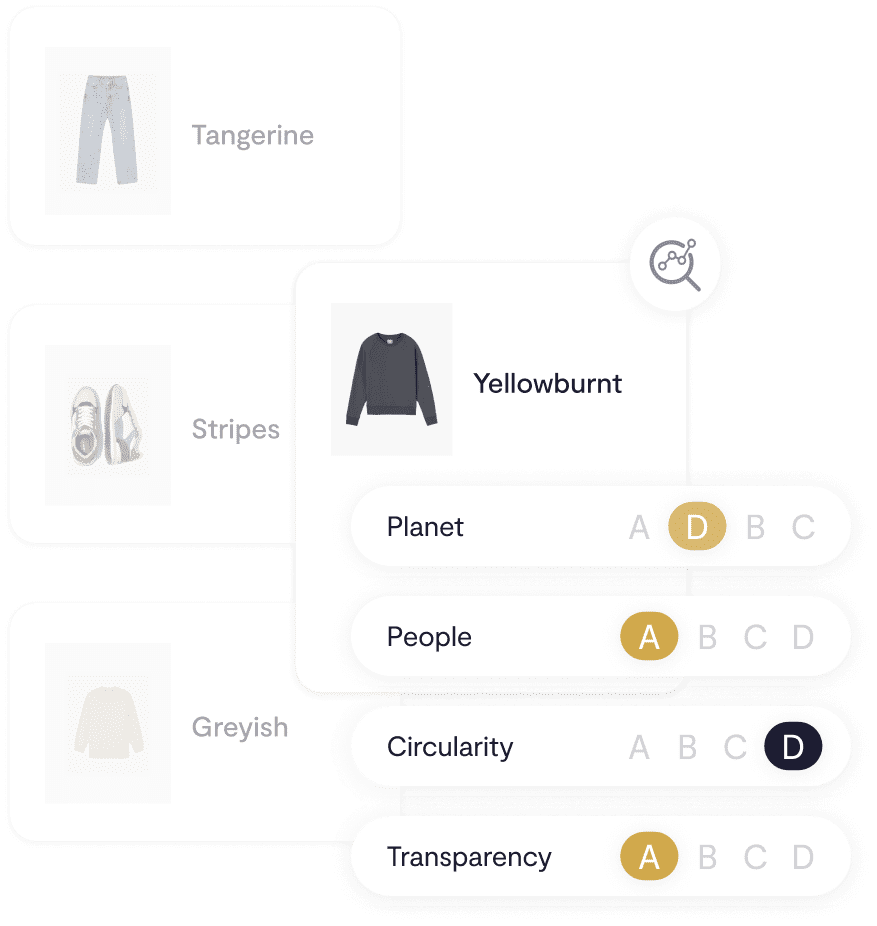Europe has a clear roadmap to achieve its climate neutrality goals by 2050. Among the planned strategies is the Circular Economy Action Plan (CEAP). A set of initiatives adopted by the European Commission in 2020 that member countries are applying at their own pace. The regulation that will promote circular fashion brings with it great news for the textile industry. Below we show you what are the actions that will be added to the plan during the coming months with the aim of preparing your business for its entry into the scene.
The Circular Economy Action Plan aims to revolutionize supply chains to optimize the use of resources and reduce the impact created by products
As an introduction, it should be noted that the Circular Economy Action Plan announces initiatives throughout the entire life cycle of products. It focuses on how items are designed, promotes circular economy processes, encourages sustainable consumption and aims to ensure that waste is reduced and that the resources used are kept within the EU economy for as long as possible. To sum up, we could say that this action plan aims to revolutionize supply chains to optimize the use of resources and reduce the impact created by products.
The measures introduced within the framework of this action plan aim to achieve the following purposes:
- Lead global efforts in the circular economy.
- Focus on those sectors that are large consumers of resources, as is the case of textiles.
- Make sustainability the norm in the products of the European Union.
- Guarantee the reduction of waste.
- Empower consumers.
- Turn circularity into a system for people and cities.
Throughout 2022, the adoption of several initiatives is planned within the framework of the action plan. Find out what new features the European Union is proposing for the coming months:
Legislative proposal for substantiating green claims made by companies
This initiative will require companies to substantiate the claims they make about the environmental footprint of their products and services by employing standardized methods for quantification. Some countries, such as Denmark with the guide published by the Consumer Ombudsman or the United Kingdom with the application of the Green Claims Code, are some of the territories that have begun to apply their own codes to regulate the communication of commercial claims linked to sustainability.
The aim of this proposal is to make claims reliable, comparable and verifiable across the EU, thereby reducing the risk of greenwashing and helping buyers make better decisions by increasing the level of trust placed in product labels.
At BCOME we believe that the best argument is the data provided by your products.
Legislative proposal empowering consumers in the green transition
This is a key objective of the European Union’s “Consumer Agenda”. This initiative mainly seeks:
- Ensuring that consumers get reliable and useful information about products, for example about their lifespan and repair options.
- Avoid greenwashing and the covert sale of products with a shorter lifespan.
- Establish minimum requirements for sustainability logos and labels.
At BCOME we want to ease conscious decision-making by the consumer through the radical transparency offered by our smart labels.
EU strategy for sustainable textiles
Through this strategy, the European Union seeks to achieve a climate-neutral circular economy where textile products are designed to be more durable, reusable, repairable, recyclable and energy efficient.
Its aim is to ensure that the textile industry fully recovers from the COVID-19 crisis in a sustainable way through the following guidelines:
- Improving its competitiveness.
- Applying the principles of the circular economy to production, products, consumption, waste management and raw materials.
- Directing investment and research towards innovation.
At BCOME we work to create a transversal change throughout the entire textile value chain and guarantee the integration of sustainability in the fashion industry.
Review of the Ecodesign Directive
This initiative aims to propose additional legislative measures to the Ecodesign Directive with the aim of making products marketed in the EU more sustainable.
It seeks to ensure that both consumers and the environment benefit from more durable, reusable, repairable, recyclable and energy efficient products. The initiative will also address the presence of harmful chemicals in textiles, among other products.
At BCOME we believe that the search for a more sustainable product requires a new conceptualization of it.
Review of requirements on packaging and packaging waste in the EU
The circular economy theory promotes the reduction of waste and the reuse and recycling of goods. This means that packaging waste should also be reduced and that it should be easier to recycle. The evaluation of the following aspects is planned in order to review the requirements on packaging and packaging waste in the EU:
- Improve packaging design to promote reuse and recycling.
- Increase recycled content in packaging.
- Address excessive packaging.
- Reduce waste from packaging.
At BCOME we can help your business prepare for future directives aimed at reducing waste generation.
Updating EU rules on industrial emissions
This initiative will update the EU rules on industrial emissions to ensure that the industrial sector reduces the damage caused to the environment.
Its objective is to guarantee the use of techniques that promote a more sustainable economy and a cleaner environment that improves public health. In this way, it promotes the European Green Deal initiative that supports the ambition to achieve zero pollution, as well as the EU’s policies on energy, climate and circular economy.
At BCOME we help you measure your key environmental impacts so you can calculate your journey towards sustainability.All these initiatives are expected to come into force in the coming months. Once approved by the European Commission, it will be each member country that decides how to apply them in its territory. If you need help to adapt your business to the measures that are to come, at BCOME we have the tools to make it possible. Shall we talk?






